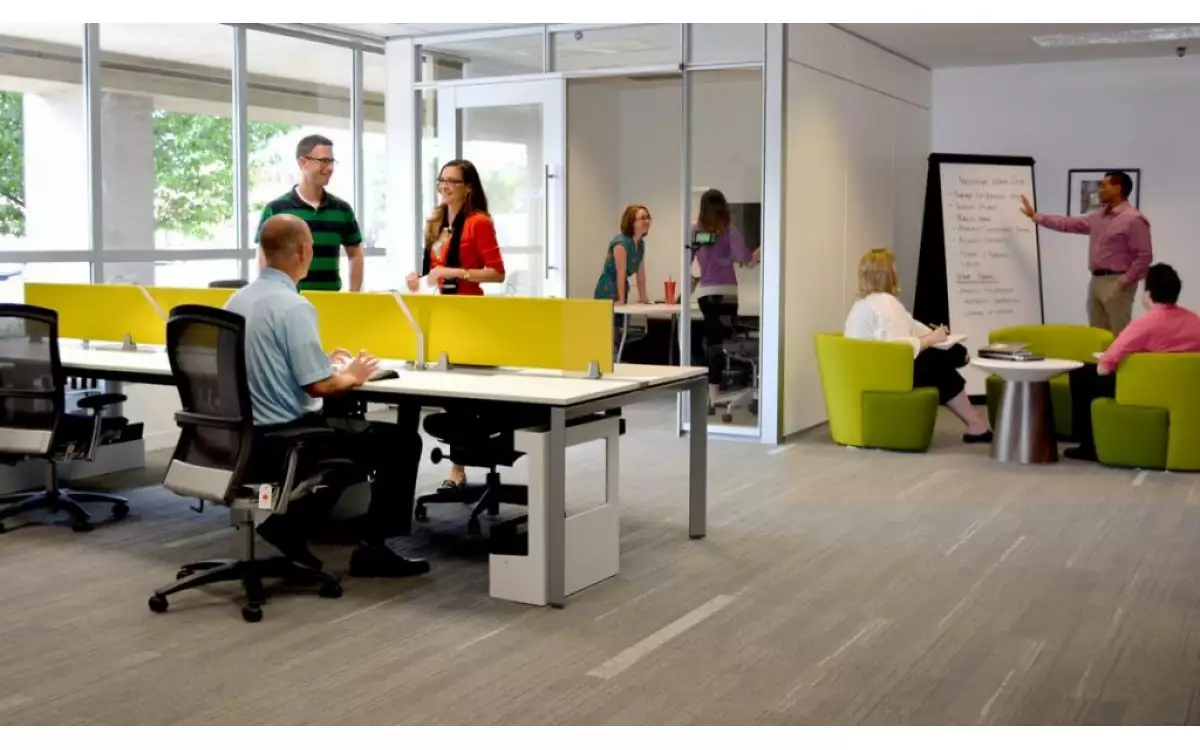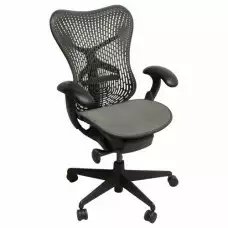We recently interviewed Paxton Manly:
Paxton Manly is the Director of People and Culture for Medicare Plan Finder. He has certifications in leadership and community development from Belmont University and extended experience in business management and development.
A highly self-motivated, hard-working individual with a passion for leadership, Paxton is a firm believer that cultivating relationships with coworkers and customers is essential to any business. Paxton coaches on what he feels is the most effective style of leadership, servant-leadership, believing that the most successful companies have teams that are comprised of passionate people who are empowered to be the best versions of themselves.
Paxton loves to put his purpose-driven skillset to use and serve humbly at the pleasure of his teammates to help provide them the tools they need to succeed.
“I want to help create an environment that is so abundant with joy and purpose that everyone comes into work feeling excited and goes home feeling fulfilled.”
He believes that regardless of the business you're in, you're in the "people" business, and he is passionate about creating and motivating great teams to provide excellent services for outstanding people. When not working, you can most likely find Paxton playing music, watching films, reading books, or traveling to new places with his wife.
Can you give a quick overview of what you do professionally and why you do it? What do you find most meaningful about your work?
Paxton: In short, I oversee our organization’s culture. To me, that means I am spending my days ensuring that our place of work has an environment that is predicated upon purpose.
When people are showing up every day living out a purpose-driven life, they are simply happier individuals. Happy people comprise happy teams, and happy teams are always the ones that are most successful. This all begins at a personal level.
Therefore, working one on one with individuals to help them discover or actualize their purpose is what I find most meaningful about what I do.
How important do you believe company culture is to an organization’s success?
Paxton: It’s not important - it’s essential. To put it quite simply, you won’t find an organization with sustainable, long-term success anywhere at any level that does not have a uniquely understood, strong culture. (I say strong and not “good” for a reason).
As far as what makes a culture “good” or “bad”? I think those principles are universal because they come down to our biology and how are designed to want to be treated.
Without naming the companies, can you give examples of good cultures you have worked in and bad cultures you have worked in and how they have led to positive and negative results respectively?
Paxton: There are companies I have worked for that make me feel cared for and safe, therefore creating a “good” culture. Those companies get results out of their people because they are working for something greater than themselves, and people feel like they have the freedom to take the risks necessary to achieve things.
There are also companies I’ve worked for that lead by fear and intimidation. In those environments, it’s an incredibly survivalistic existence and everyone preoccupies their time with staying alive, rather than advancing the group.
What is the company that you have worked for or with that you believe has the best culture and why? What can other companies do to emulate their success?
Paxton: I’ve been fortunate enough to work for several organizations with great cultures, so it almost feels unfair to have to choose just one. However, the common threads among culturally successful organizations are always the same, in my experience.
It all comes down to how you would treat your loved ones: respect, kindness, empathy, and compassion. Companies that do that genuinely for the people that choose to work for them win every time.
What is the company that you have never worked for or with but believe has the best culture? What about that company’s culture do you admire from afar?
Paxton: Easy. Barry-Wehmiller. In 2008, I believe, Barry-Wehmiller, which is a manufacturing company in St. Louis, suddenly lost something like 25%-30% of their clients due to the recession. Obviously, this is the type of situation that costs a company millions of dollars, and as a result, lay-offs are to be expected, right? Well, not for their CEO, Bob Chapman.
Against the wishes of the executive team/board, Chapman refused to fire anyone and instead rolled out what was basically a furlough program that required each individual of the organization to take four weeks unpaid vacation during the year. It didn’t all have to happen at once, but out of the 52 weeks that year, you had to not be paid and not work for four of them.
As Chapman announced this, he said, “it is better that we should all suffer a little than any of us should have to suffer a lot.” What happened was an incredible chain reaction of comradery. Those who could afford to take more time did so in order to allow those who couldn’t afford it to take less. People even showed up, unpaid, to continue to work and advance the cause.
Morale went up, the company saved something like $20 million dollars, and it changed the organization forever. Why? Because people have no problem having their leader's backs when they know their leaders have theirs. Just talking about this has me so fired up!
Describe your office environment and how it relates to your company culture. Give us a feel for your office design, from the office furniture design (e.g. Do you have black chairs? Do you have Herman Miller office chairs? Do you buy used office furniture, refurbished office furniture, modern office furniture, etc.? Do you buy cheap chairs / buy cheap furniture or buy high end furniture?) to the intangibles.
Paxton: Don’t get me wrong, nice chairs and comfortable furniture is an easy way to show your employees that you care, but if you spend too much time worrying about these kinds of details, you’re totally missing the mark. That being said, in the spirit of answering the question, we have a menagerie of different types of chairs, desks, tables, etc.
As a small business working in an old repurposed bank with a family atmosphere, we do not particularly worry about things such as matching furniture. You’ll see all kinds of chairs if you pay our office a visit - black, multi-colored; old or refurbished and new; cheap and high-end.
As long as it’s comfortable, so are we!
What do you believe are the key elements to creating and maintaining an uplifting office environment?
Paxton: I’m sure I sound like a broken record at this point, but you must genuinely care for your people. Praise in public, coach in private, celebrate wins, learn from mistakes, have fun, and treat your teams as people first and employees second.
What does ergonomics mean to you?
Paxton: Every person is different. Some people need an office with a door that they can close to feel comfortable, others want an open space, others want something in between.
Design an office to provide options for all three, extend privileges such as work-from-home days, and let people determine for themselves how they best operate. This individual freedom allows your team to be more comfortable, which increases productivity.
How has your knowledge of ergonomics impacted your work?
Paxton: The impact on my work is when I feel or notice that the ergonomics of my environment are either misdirected or out of place completely. This is of the utmost importance because when you're doing a job and your body is stressed by an awkward posture, extreme temperature, or repeated movement, your whole musculoskeletal system is affected.
It’s about customizing and fitting the workplace to the needs of the person inhabiting the space and making the adjustments necessary, whether tangible or intangible, with the end goal of increasing our efficiency and productivity as a team. You can’t do those things if you’re physically uncomfortable!
How do you buy office furniture?
Paxton: At Medicare Plan Finder, all requests go through our facilities manager who connects with all new hires and asks if there are any particular accommodations they are hoping for or anything extra they may need to be comfortable in their space.
Do you buy furniture online? When do you decide to buy?
Paxton: The furniture that we use in the office is purchased online, usually through furniture websites. If someone wants a new chair or desk because what we have does not fit their needs, we will accommodate them in any way possible.
For example, recently a new hire had been working at a desk he was given when he started. He was uncomfortable with the desk and saw a different type of desk he fancied being used by other team members. He inquired about the desks and was given permission, and a corporate card, to purchase a new one of his own from Ikea’s website.
What office chair do you sit in and why? What specific features about your office chair do you appreciate and enjoy? And how would you weigh the relative importance of comfort, posture support, design, cost and other variables?
Paxton: I honestly couldn’t even tell you. I am rarely in my chair as I am usually interacting and developing relationships with our team members. Being that I am solely focused on listening to their ideas and challenges so I can provide valuable advice and solutions; I haven’t thought twice about my office chair since I started working here.
BUT, sitting or standing, my mother would want me to tell you that the correct posture is very important.
What is your best advice on maximizing productivity in the office?
Paxton: I’m a strong believer in following Steve Covey’s Matrix if you are looking for time management tips, but I think the single most effective way to maximize productivity is spending 30 minutes in solitude every day in prep for the next day.
Whether that’s making a to-do list, meditating, prayer, emails, whatever.
If you set aside 30 minutes a day, five days a week, for a month, you just found 10 extra hours a month.
What is your best advice on effectively managing others?
Paxton: Don’t.
Do not manage others.
People can manage themselves. Serve others. Coach others. Empower others. Believe in others. Listen to others. But never, ever, manage others.
What workplace trends do you see on the horizon? Leave us with three things we should be on the lookout for.
Paxton: The millennial generation, (of which, admittedly, I am a part of), gets a lot of flack these days. We’re “entitled”, “selfish”, “dependent on instant gratification”, “killing industries”, etc. We’ve heard it all, right? However, what I think is missed in all of that is the fact that we are possibly the generation with the most self-worth, lowest tolerance for BS, and the healthiest dose of skepticism toward corporate enterprises this country has ever seen.
Because of this, I think you are going to see radical changes in standard operating procedures when it comes to things like work-life balance, covered benefits, and growth and education programs.
I think in the next 10-15 years we will see the standard workweek become a thing of the past as we gave way to more amoebic structures. I can easily see a four day work week becoming the norm.
I can see entire companies being fully remote, (and not just tech startups). I can see robust vacation packages, paid leaves, fully covered insurance, employer-provided service programs like childcare, and even loan repayment programs becoming a norm.
I think we saw how our parents were treated as pawns in a grander scheme as a result of the latest recession and we collectively won’t tolerate the same thing, generationally. I think this will catalyze a radical change in the American workforce.








